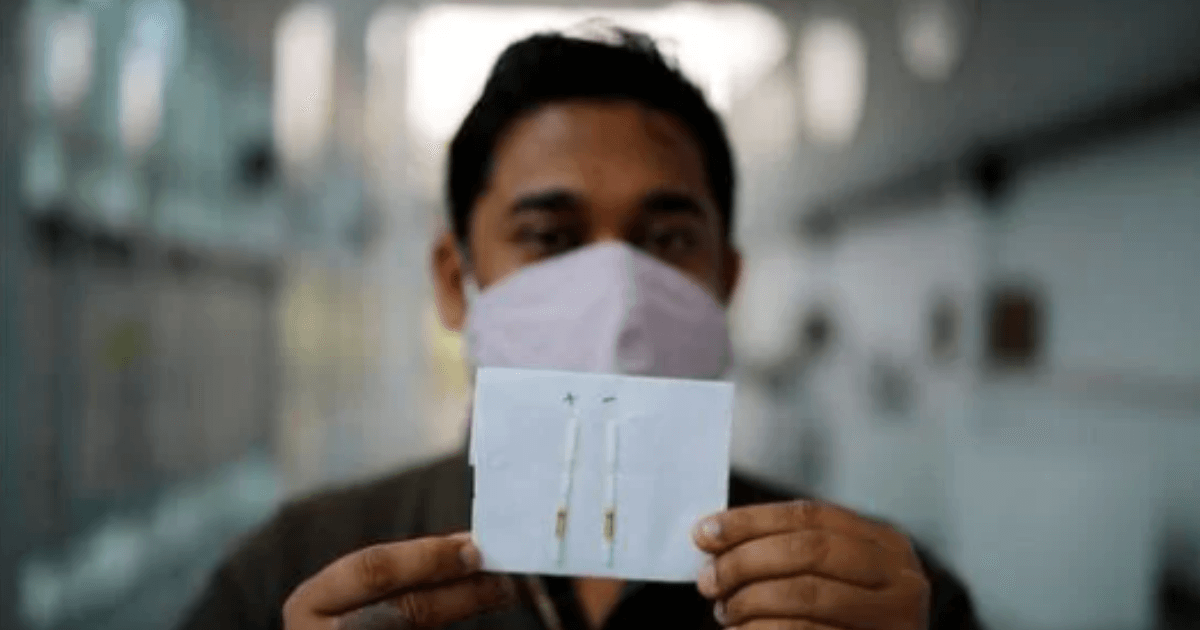With the rise in the covid positive cases across the world, it has become an utmost concern to detect and test the masses for any of the three new variants. As this new test will make detecting the new variants simpler, would this eliminate the need for complete genetic sequencing for diagnosis, which raises the cost manifold and takes about three days. Can it be tweaked even further for any possible mutation or new variant that might be on its way? If so, this could be the boon for the medical industry in the fight against covid.
Researchers from the Institute of Genomics and Integrative Biology, New Delhi, have modified their gene-editing technology-based Feluda paper-strip diagnostic kit in such a manner that a simple polymerase chain reaction (PCR) test can be used to detect mutated variants of the Sars-CoV-2 virus that causes coronavirus disease (Covid-19), said the institute. After naming their first kit after the famous fictional Bengali detective, the researchers have named the second one Ray (Rapid variant AssaY) after the author of the detective series, Satyajit Ray.
At present, to detect the UK, South Africa, or Brazilian variants, the entire virus genome has to be sequenced to look for specific mutations. This, however, adds cost and time to the process — three days in comparison to a few hours it takes to do a PCR. “We have developed the Feluda platform to come up with a test that can tell us in a few hours whether an infected person has any of the three new variants of concern. This will make detecting the new variants simpler and eliminate the need for complete genetic sequencing for diagnosis, which raises the cost manifold and takes about three days,” said Dr Debojyoti Chakraborty, senior scientist at IGIB and part of the team that developed both the tests.
He added, “This does not mean we can stop sequencing the viral genome. We will still have to sequence a proportion of our positive samples to detect whether new mutations are arising or any imported mutations are in circulation. Used along with the Feluda strip, this test will just help in diagnosing whether a particular person has the mutated variant or not.”
“This does not mean we can stop sequencing the viral genome. We will still have to sequence a proportion of our positive samples to detect whether new mutations are arising or any imported mutations are in circulation. Used along with the Feluda strip, this test will just help in diagnosing whether a particular person has the mutated variant or not.”
Once a swab sample from the patient is collected, the viral RNA is extracted from it and amplified using a thermo-cycler machine. The Feluda (FnCas9 Editor Linked Uniform Detection Assay) test then uses a paper strip barcoded with the Cas9 protein to recognise specific portions of the genetic material of the Sars-CoV-2 virus to give a positive result.
For Ray, the scientists have encoded the Cas9 protein to recognise the N501Y mutation, which is present in all the three new variants of concern. “In theory, the Cas9 protein can be encoded to recognise any number of mutations as and when they arise. The high specificity of the Cas9 can be utilised to detect any point mismatch in the viral genome,” said Dr Chakraborty.
The lab is currently in talks with the industry to market the product. Tata Sons had manufactured and marketed the initial Feluda test kits. The cost of the Ray test is likely to be the same as Feluda. The scientists had earlier said that the lab cost of the test came up to ₹500 per sample, but the final cost decision depends on the company marketing it.
Source: www.hindustantimes.com

